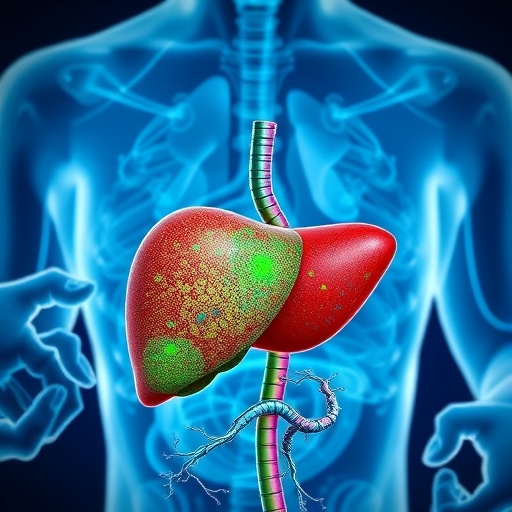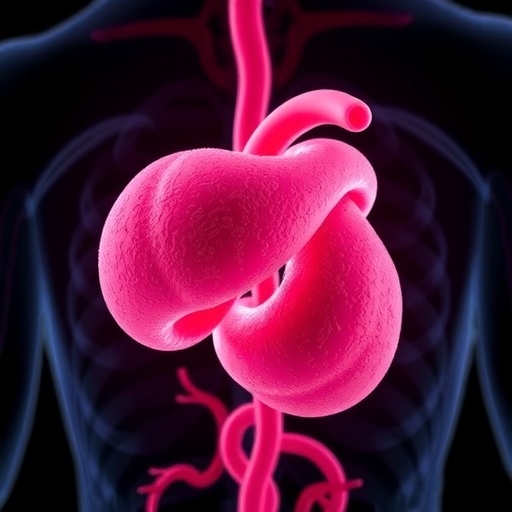
Enhanced Recovery After Surgery (ERAS) programs have revolutionized the approach to liver transplantation, providing a comprehensive framework aimed at improving patient outcomes, minimizing complications, and expediting recovery. The recent review article by Guzzi, Strand, Hussain, and their colleagues showcases the pivotal enhancements ERAS brings to liver transplant procedures. This initiative encompasses a series of protocols and guidelines developed to optimize the surgical experience and mitigate the impact of surgery on patients’ health.
The foundation of ERAS protocols is rooted in evidence-based practices designed to streamline the perioperative phase. Before delving into specific enhancements, it is crucial to understand the significance of liver transplantation itself. With liver disease rising globally, the demand for liver transplants has surged, prompting healthcare systems to refine their methodologies. ERAS programs have emerged as a response to this challenge, aiming to address the traditional complications associated with major surgical procedures, particularly in this vital area of healthcare.
One of the core tenets of ERAS is the emphasis on preoperative education and preparation. Patients who are well-informed about the surgical process, recovery expectations, and postoperative care generally exhibit lower anxiety levels and improved satisfaction. Education initiatives are tailored to individual patient needs, incorporating discussions that cover the nature of the transplant, potential risks, and the role of multidisciplinary teams throughout the recovery journey. This proactive engagement prepares patients not just mentally but also physically, ensuring they enter the operating room in optimal health.
Another vital component of ERAS is the optimization of nutritional support. Nutritional status is a key factor that influences recovery outcomes after major surgeries like liver transplants. Malnutrition is prevalent among patients with end-stage liver disease, making it imperative to assess and enhance nutritional intake prior to surgery. Implementing rigorous dietary plans that may include supplemental nutrition shakes or enteral feeding can significantly bolster the patient’s resilience, improving postoperative outcomes and healing potential.
Minimally invasive surgical techniques, often used within the ERAS framework, further illustrate the program’s innovative nature. Utilizing laparoscopic or robotic-assisted surgery techniques can substantially reduce tissue trauma, leading to less postoperative pain, shorter hospital stays, and quicker rehabilitation times. These methods stand in stark contrast to traditional open surgeries, showcasing how technological advancements contribute directly to patients’ expedited recovery, aligning with the primary goals of ERAS.
Additionally, the management of postoperative pain plays a crucial role in enhancing recovery. Multi-modal analgesia strategies are a hallmark of ERAS protocols. By employing a combination of non-opioid analgesics, regional anesthesia, and nerve blocks, healthcare providers aim to deliver effective pain relief while minimizing the reliance on opioids. This approach not only reduces the risk of opioid-related complications but also encourages early mobilization, a key factor in accelerating the recovery process.
Furthermore, the incorporation of early mobilization techniques significantly influences the overall recuperation trajectory of liver transplant recipients. ERAS advocates for patients to be encouraged to sit up, stand, and ambulate as soon as it is safely possible post-surgery. Early movement leads to improved circulation, reduced risk of thromboembolic events, and enhanced respiratory function. Therefore, addressing the barriers that might impede early mobilization is paramount, such as optimizing the postoperative environment and employing supportive physiotherapy teams.
Another critical finding presented in the article is the necessity for comprehensive discharge planning. An effective discharge strategy is essential for maintaining recovery momentum. Patients equipped with tailored follow-up plans, clear instructions on medication regimens, and contact information for healthcare teams experience fewer readmissions and better long-term outcomes. The integration of telehealth services post-discharge can further facilitate real-time communication between patients and healthcare providers, addressing concerns as they arise.
The review also highlights the importance of integrating a multidisciplinary approach within the ERAS framework. Surgical teams, anesthesiologists, nurses, dietitians, pharmacists, and rehabilitation specialists must collaborate seamlessly to implement ERAS protocols effectively. This collective effort ensures that every aspect of the patient’s care is addressed holistically, optimizing recovery on multiple fronts. Each team member plays an integral part in monitoring patient progress, addressing complications, and facilitating continuous improvement of the ERAS processes.
As data accumulates, the positive impact of ERAS on liver transplant outcomes becomes increasingly apparent. Research suggests that institutions implementing these programs report reduced length of hospital stays, decreased postoperative complications, and enhanced patient satisfaction ratings. By synthesizing evidence-based practices into coherent protocols, ERAS transforms the liver transplantation journey into a more positive experience, fostering trust and confidence among patients and providers alike.
The operational efficacy of ERAS in liver transplantation underscores the necessity of personalized medicine. As healthcare advances, the recognition that each patient has unique needs tailored evidence-based pathways is paramount. ERAS programs exemplify this by adapting protocols to individual patient characteristics, including age, underlying health conditions, and psychosocial factors. Such personalized approaches contribute significantly to successful liver transplant outcomes while minimizing the likelihood of complications.
Moreover, ongoing research and evaluation of ERAS protocols are crucial. Continuous monitoring of patient outcomes, satisfaction levels, and healthcare utilization will provide valuable insights into the adaptations required to enhance these programs further. The iterative process of improvement is integral to the evolution of healthcare practices, ensuring that evidence-based strategies remain at the forefront of liver transplant care.
In conclusion, the implementation of Enhanced Recovery After Surgery programs across liver transplantation centers represents a significant leap forward in surgical care. By amalgamating preoperative education, nutritional intervention, minimally invasive techniques, effective pain management, early mobilization, and the establishment of a multidisciplinary approach, ERAS addresses the traditional challenges associated with liver transplantation. As the healthcare landscape evolves, the insights provided by the review by Guzzi et al. will undoubtedly shape future practices in liver transplantation and beyond, underscoring a commitment to optimizing patient recovery and enhancing surgical outcomes.
The landscape of liver transplantation is ever-changing, and as ERAS programs continue to evolve, they will be integral in transforming patient care, showcasing the power of innovation in medicine. The quest for improved healthcare outcomes is relentless, and initiatives like ERAS reaffirm the importance of a collaborative, evidence-based approach that places patients at the heart of every decision.
Subject of Research: Enhanced Recovery After Surgery (ERAS) Programs for Liver Transplantation
Article Title: Highlights of Enhanced Recovery After Surgery (ERAS) Programs for Liver Transplantation
Article References:
Guzzi, J., Strand, E., Hussain, N. et al. Highlights of Enhanced Recovery After Surgery (ERAS) Programs for Liver Transplantation.
Curr Transpl Rep 11, 125–130 (2024). https://doi.org/10.1007/s40472-024-00442-8
Image Credits: AI Generated
DOI: 10.1007/s40472-024-00442-8
Keywords: Enhanced Recovery, Liver Transplantation, Surgical Outcomes, ERAS Programs, Multidisciplinary Approach
Tags: addressing challenges in liver transplantationcomprehensive liver transplant guidelinesenhanced recovery after liver surgeryERAS protocols in liver transplantationevidence-based practices in surgeryimproving satisfaction in surgical recoveryliver disease and transplant demandminimizing complications in liver surgeryoptimizing surgical experience in liver transplantationpatient outcomes in liver transplantpostoperative care in liver transplantpreoperative education for liver transplant patients




